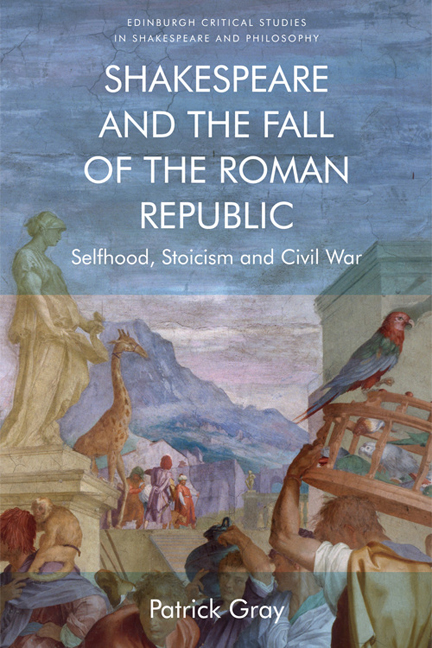Conclusion: Between Humanism and Antihumanism
Summary
In the final turn to the idea of God as other that I have called ‘the last interpellation’, as well as my emphasis throughout on one-toone relationships between individuals, it may seem amiss that I do not invoke the ideas of Emmanuel Lévinas, including especially his concept of ‘the face-to-face’. Lévinas might also seem to provide the kind of Via Media between humanism and antihumanism that I find instead in the work of Bakhtin. From my perspective, however, as well as that of other critics such as Buber and Ricoeur, Lévinas’ underestimated antihumanism presents some cause for concern. In his analysis of the relationship between the self and the other, Lévinas too thoroughly and immediately subsumes what I have called ‘the horizontal’ into what I have called ‘the vertical’. I discuss something like Lévinas’ concept of the other in the conclusion to my analysis of Antony and Cleopatra as what Katharine Maus calls ‘the hypostasized divine observer’. By and large, however, I want to preserve the idea that the other can also refer more simply to other people: fellow human beings. God is ‘an’ other, just like language is ‘an’ other. Neither the divine nor the symbolic order, however, is ‘the’ other, meaning, the only other with any effective agency, the bedrock or ground of being: ‘the Other’ with a capital O (L’Autre with a capital A), as per Lévinas’ usage, as well as Lacan’s.
For Lévinas, the other is ‘infinite’, ‘superior’. He cannot be said to be simply any other thing whatsoever, or even any other human being. Instead, for Lévinas, the other is a specific entity, albeit one which we can describe at best only apophatically: the ineffable, wholly transcendent God of Jewish Scripture. In other words, Lévinas’ other is what Derrida would call ‘the transcendental signifier’, except that, unlike Derrida, Lévinas believes that this other really does exist. The God of the Hebrew Bible is not wholly a myth, but out there, somewhere, in an objective sense. We meet him in person constantly, albeit not directly. Instead, we encounter him at one remove, through quotidian, ‘face-to-face’ exchanges with other people which for Lévinas are the most fundamental ‘given’ of human experience. As regards Lévinas’ premises, it is fairly transparent that the God of traditional Judaism is to be understood as representing something radically distinct from any given human being.
- Type
- Chapter
- Information
- Shakespeare and the Fall of the Roman RepublicSelfhood, Stoicism and Civil War, pp. 271 - 278Publisher: Edinburgh University PressPrint publication year: 2018

